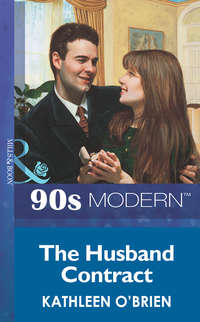
Полная версия
The One Safe Place
It had huge picture windows that looked out onto the sunsets, and porches on all three floors. She felt sure that the place had been built as a haven, a place where terrible things wouldn’t dream of happening.
If only that were true.
“Tell you what,” Reed said, as if he had followed her longing gaze to the warm, lighted house. “Why don’t you let Parker take you up and show you where your rooms are? That way you can get a warm shower and change.”
She longed to say yes. A warm shower sounded like heaven. But she looked down at Tigger, uncertain. “I think I’d better wash the puppy off first,” she said. “He’ll get mud all over your lovely house.”
“I can do that.” Reed squatted down again and tugged lightly on Tigger’s muddy ear. “I’ve got everything I need back in the clinic. That is, if Tigger doesn’t mind going with a stranger.”
Tigger had never met a stranger. He licked Reed’s hand and wriggled with anticipation. Reed chuckled. “Guess that’s my answer,” he said pleasantly, then looked at Spencer. “I promise I’ll take good care of him.”
Suddenly Parker Tremaine stepped up, clearing his throat. “I think you’ve got it backward, Reed,” he said with a wry smile. “It’s your house—I’m not even sure which rooms you’ve set aside for them. So how about you take Faith and Spencer up to the house, and I’ll wash the dog?”
Tigger sniffed Parker’s outstretched hand and began thumping his tail in unqualified approval. But Reed gave his friend a quizzical expression that Faith couldn’t quite decipher.
“What about your suit, Parker? I seem to remember that you’re wearing Sarah’s favorite suit.”
Parker tilted his head and grinned slowly. “True, but, you know, Reed, there is something Sarah values even more than a good suit.”
Reed squinted narrowly at the other man, as if he suspected him of an ulterior motive. “Really. And what would that be?”
Parker hesitated—a small pause that had a distinctly teasing flavor. Faith saw that they were communicating privately—and very effectively—but she couldn’t really tell about what. Maybe it was as simple as trying to get out of having to wash the muddy dog. Or having to squire the dripping guests up to the shower…
Suddenly Parker held out his hands with a smile, asking Spencer to transfer custody of Tigger. To Faith’s amazement, Spencer hardly hesitated. He handed the puppy over with a single kiss to his matted head.
“Dogs,” Parker said, holding Tigger up with the triumphant air of a magician pulling a rabbit out of a hat. “As you know, Reed, Sarah just loves dogs.”
SPENCER AND TIGGER fell asleep early, almost as soon as they had wolfed down dinner. Reed wasn’t surprised. They had both been subdued, obviously exhausted by their eventful day.
At one point, Spencer had looked up at his aunt intently, then gazed over at his bed. She must have understood, because she turned to Reed and asked whether he’d mind if Tigger slept on the bed.
Naturally, he hadn’t minded at all. He’d been six years old once. And frankly he still didn’t see the point in having a dog if you didn’t let it sleep on the bed.
Reed assumed that Faith would fall asleep early, too, but to his surprise when he strolled out onto the second-floor porch at about ten o’clock, she was standing out there, as well.
She didn’t hear him at first. Wrapped in a moonlight-blue robe and a gray cloud of deep thoughts, she was staring into the trees as if she longed to lose herself in their inky depths.
It probably would be wiser to turn around and leave her there. But he wasn’t feeling wise. All evening he’d been feeling edgy, unable to settle in. He felt irrationally as if his life was on the verge of becoming completely different, though he had no idea how.
Maybe it was just the weird feeling of having other people in the house. No one but him had slept in this house since Melissa died.
And, to be honest, he was curious. He wanted to know Faith Constable’s story. Parker had given him broad outlines, but, now that he’d met her, outlines weren’t enough.
He was careful to make enough noise walking toward her to be sure she’d hear him. Given what she’d been through lately, the last thing he wanted to do was startle her.
She turned around. “Hi,” she said, smiling.
“Hi,” he responded casually, but inside his senses were suddenly reeling. She smelled of soap and some kind of perfume that made him think of pink flowers and springtime. She wore no makeup, and the blue-gray shadows under her eyes were more apparent than before, but somehow she was more beautiful than ever.
Her dark hair fell to midarm—curving against the tender spot where he had earlier noticed a large white bandage. The bandage had been a brutal reminder that she wasn’t here for a social visit. She wasn’t even here to be his housekeeper.
She was a wounded, frightened woman. A refugee seeking asylum.
He felt a sudden flash of anger toward this insane, vicious Douglas Lambert. How could anyone be trying to hurt someone so beautiful?
He joined her at the railing. The night was chilly, but not yet cold. The autumn sky was like a piece of heavily sequined black satin.
“So,” he said, not sure how to open a normal conversation. So much about this situation was far from normal. “Is the room okay? Do you have everything you need?”
“Oh, yes, absolutely.” She sounded stilted, but polite. She turned toward him with another of those strained smiles. “I haven’t thanked you properly yet. It’s very generous of you to let us hide out here.”
“I’m glad to be able to help,” he answered. God, this was like a bad comedy of manners. They were living together, for Pete’s sake. They might be living together for weeks—even months. They were going to have to get past this stilted exchange of meaningless pleasantries.
“So, I was wondering… If this is a good time, with Spencer asleep, I thought maybe you’d be willing to tell me a little more about what happened.”
She touched her arm. “More like what?”
He chose his words carefully. He didn’t want to sound insensitive, as if he found her tragedy as morbidly fascinating and unreal as a soap opera. “About your sister, and why this guy is still after you. Why Spencer doesn’t talk.”
She didn’t answer at first. He shouldn’t have rushed her, he thought, kicking himself mentally. She wasn’t ready.
“I’m sorry,” he said. “I know it can’t be easy to talk about. It’s just that—if I’m going to help—I thought maybe I should know a little more.”
She gripped the railing and stared back out at the trees. “No, that’s okay,” she said. “You’re right. It’s just that sometimes it’s hard to—”
“I know,” he said, wishing he could unspeak the words. What a clumsy approach this had been. He really was rusty at dealing with women, wasn’t he? “It can wait.”
“No. Now is better. I just—I don’t really know why Spencer doesn’t talk.” It was as if she had to hurry up and get started, for fear she might lose her courage. “Not exactly. The psychiatrists seem to think it’s the stress of losing his mother. They use some pretty impressive phrases when they talk about it. They say his ‘stressor reactions of fear exceeded the normal adaptive responses.’”
She shrugged, then winced. The movement must have pulled her stitches. “Whatever that means.”
“I guess it means his system maxed out.”
“Right. They called it his ‘breaking point threshold.’”
Yeah, Reed thought. He’d heard those terms himself, back when he was in his heavy denial and heavy drinking phase. The breaking point threshold. Everyone had one. You didn’t necessarily see it coming, but you sure as hell knew when you crossed it.
“Anyhow,” she went on, “they seem to think it’s selective, that he can talk if he wants to—as opposed to a true loss of neurological function. Apparently that’s a positive sign.” Her eyes grew dark. “I hope they’re right.”
“I think they probably do know what they’re talking about,” he said. “Even if they like to say it in some pretty pompous ways.”
She rewarded him for that supportive joke with a brief smile. “Anyhow, I guess I ought to tell you about Doug, too. He’s the man…the man who—”
“They told me,” he said quickly. “He’s the man you believe killed your sister.”
“I know he did,” she said with a sudden vehemence. “I don’t understand why no one can just believe me!”
“I believe you,” he said. And he did. He had seen how her face blanched, and her lips had seemed to grow stiff when she tried to say his name. She knew Doug Lambert was a killer. She knew it in her veins, which in his book was far more reliable than knowing it in your head.
She looked at him hard, as if she wondered whether he might be merely humoring her. But she must have seen his sincerity, because she took a deep breath and went on.
“I have an interior design business. Doug was one of my clients. He had a lot of money, and he wanted his entire house done over. I worked with him for a couple of months, but eventually his interest grew…personal.” She swallowed. “Personal and very disturbing.”
“He wanted a relationship?”
She nodded, shivering slightly. “He was obsessed with it. It was pretty frightening, actually. He was a big man. Not as tall as you are, but bulky. Sometimes, when I wouldn’t let him—” She paused, getting control of her voice. “You could almost feel the violence running through him.”
Reed waited, still careful not to push. It was a little like trying to coax a hurt kitten out of the safety of its cage. He had learned through the years that you succeeded far faster if you did absolutely nothing, just provided a safe place to enter.
“I handed his work off to my partner, but he wouldn’t take the hint. Eventually we had to turn the whole job over to another firm. And still he wouldn’t stop. He kept calling, coming over unannounced, sending roses. Thousands of red roses.” She glanced at Reed. “I used to like roses. You can’t imagine how I hate them now.”
He didn’t deny it. He couldn’t know, not really. Probably no man could—especially not a healthy, physically capable man. Men generally met other men on a level playing field. But take this fragile, slender woman next to him—probably no more than five-five and just over a hundred pounds. All the self-defense classes in the world wouldn’t change the fact that a six-foot man would always have the advantage.
“I had invited Grace over that day,” she said. “Douglas was supposed to be out of town, and I was feeling great. It was lovely to know he wouldn’t show up and make a scene. Grace was happy, too. Spencer’s father died three years ago, but Grace had found a new boyfriend, and she was so happy—”
He touched her shoulder, careful to avoid the stitches. “It’s all right,” he said. “You don’t have to tell me this part if you don’t want to.”
“I do want to.” She was standing very, very straight and her gaze was looking at something he couldn’t see. “I had gone out for supplies for lunch, and when I got back, I saw Spencer sneaking out of the building. He had Tigger with him. I’m sure Grace had told him not to leave the apartment, but my apartment building was next to a park, and it probably was just too enticing.”
She smiled a little. “You likely can’t believe it, but before his mother died Spencer was a very mischievous little boy. Very active. Talked a mile a minute. She used to say she couldn’t keep him still long enough to tie his shoes.”
Reed smiled, too. It was a cute picture. He wanted to see the little boy like that again.
“He was sneaking out to play with Tigger at the park. He was so ashamed when he saw me coming after him. He’s not naughty, just mischievous. He came with me right away. And that’s when I saw Doug Lambert. Coming out of my apartment building.”
She put her hand over her eyes. “He saw me, too. I’ll never forget the look on his face. It was as if he’d seen a ghost.”
“Oh, my God.” Reed hadn’t heard this part. He hadn’t realized that Doug Lambert had killed the wrong sister. Suddenly he could feel the pit of guilt that must yawn before Faith Constable, and he marveled at her ability to keep her balance, to keep from falling into it and never coming out at all.
“That’s right. He thought he had just killed me. I honestly believe it wasn’t until he saw me on the street with Spencer that he had any idea he had killed Grace instead.”
It was too horrible. “You and your sister—were you twins?”
“No, but she was only a year older than I was, and we looked so much alike. She wore her hair the same way. We even shared clothes. I think he was just so angry, when he came in and heard her talking to Kenny on the telephone, when he heard what she was saying. Kenny told the police that they had been so playful, kissing each other through the phone, and talking about—”
He heard the moment her voice broke. She made a choking sound, struggling to hold back. And then, defeated, she ducked her head, trying to hide the tears. “I hate him,” she said. “I hate him so much.”
He didn’t think. He just reached out and pulled her up against him.
“It’s all right,” he said. “Go ahead. It’s all right to cry.”
She didn’t try to free herself. But she didn’t surrender to the emotion either.
“No, it isn’t,” she said tightly. Her voice was muffled against his shirt, but he could still hear that it was thick with tears that needed desperately to fall. “I can’t let Spencer see me crying.”
“Spencer is asleep,” he said. Her hair was as soft as the black satin sky, and he ran his hand down it over and over, as if he could stroke the tears out of her with the rhythmic touch. After a few minutes, he imagined that her muscles were relaxing, just a little
“Go ahead,” he said. “Let it go. It isn’t good to keep it all inside.”
He knew that all too well. He hadn’t cried, either, after Melissa died. He had taken refuge in liquor the way Faith was taking refuge in her anger. Either way, the unshed tears would poison you, until you hardly knew who you were.
She shook her head, but his shirt was warm and wet where she had been, and he knew she was losing the fight.
“Crying is weak,” she whispered. “I haven’t cried since the day she died. I can’t afford to be weak, can’t you see that? I have to be strong until they catch him.”
It was too cruel. He tightened his arms around her. And as he felt her slender body press against him, he was suddenly reminded of a small, broken bird he had once treated. It had been brought to him much too late. The bird had died in his hands.
Determination shot through him like a burning streak of light. She had come here for protection, and by God he would make sure she got it.
“No, you don’t,” he said softly. “You’re not alone anymore. Just this once, let someone else be strong for you.”
She tensed again, holding her breath. And then, weeks and weeks too late, this brave, grieving woman finally allowed herself the luxury of tears.
DOUG LAMBERT laughed to himself as he passed a policeman on the street. For a minute, he considered asking the cop for a dollar, just to enjoy the thrill of looking into his eyes and knowing the dumb bastard had no idea who he was.
But ultimately it wasn’t worth it. Cops were too stupid to live—fooling them wasn’t even very much fun.
While they scrambled around, putting out their asinine all-points bulletins about millionaire murder suspect Douglas Lambert and scouring all the obvious places in vain, Doug was hiding in plain sight.
Living at a squalid, smelly homeless shelter.
See, that was the key. The cops had no imagination. They never even thought of looking there. They believed he was rich, spoiled, incapable of enduring hardship, unwilling to sleep on anything but his expensive Turkish sheets or to eat anything but five-star cuisine.
Morons. They didn’t know a damn thing about Doug Lambert. He came from a filthy, wretched nothingness, and he was perfectly comfortable returning there for as long as it took.
Actually, it had been almost embarrassingly easy. Get a box of Clairol do-it-yourself color and go a few weeks without a shave or a hundred-dollar haircut.
Take out your expensive front bridgework and let your lips cave in over a toothless mouth. He felt smug to think how everyone had urged him to get implants—he could certainly afford them. But he didn’t like doctors, he didn’t like pain, and so he had settled for the best damn dentures on the market. See, now, what a good decision that turned out to be?
Then splurge five bucks on cast-off jeans and a T-shirt and a pair of stained sneakers. After that you could walk right up and spit in that flatfoot’s ugly face, and the damn fool would never know the difference.
Still, Doug knew he had to find out where Faith had gone. He could feel the urge building inside him, until it was so big now it was almost a physical pain. Sometimes he thought he couldn’t breathe around it.
He had to find her.
He wasn’t stupid enough to hire a private detective. The police would be looking for that. But there were other ways. A man like him knew plenty of useful people whose names weren’t in the Yellow Pages.
By the time he arrived back at the shelter, he had come to a decision. He wouldn’t wait any longer, with this anger, and the desire that was its twin, building inside him like a tumor. He was patient, but he wasn’t a waffler. He liked action.
He sat down, put his hand into the pocket of the drunk slumped next to him and pulled out a couple of quarters, staring in the man’s eyes the whole time, daring him to object.
And then he dropped them into the pay telephone in the hall and dialed a number he knew well but almost never used.
He needed relief, and there was only one way to get it.
Faith Constable had to die.
CHAPTER FOUR
“LET GO OF THAT, you diabolical son of a—”
Faith squatted down by the vacuum cleaner, tugging with all her strength at the drapery pull that was half-in, half-out of the Hoover-monster’s long silver snout. But she’d forgotten to turn the motor off, so the monster was still roaring, sucking in, as if green tassels were the most delectable treats on earth.
“I…said…let…go!”
It was too late. By the time she reached the power switch, the tassel had disappeared. The monster’s roar dwindled to a sick choking sound, and the air smelled ominously of burned rubber.
She bit back a curse, remembering just in time that Spencer was in the room. She glanced at him.
“Sorry,” she said. “This machine is giving me a hard time.”
Tigger had been watching her the whole time, whining and growling and thumping his tail. But Spencer just kept staring out the large picture window, which offered a spectacular view of the hickory, birch, sycamore and maple that dotted the Autumn House property, thickening until gradually they blended with the untamed woods beyond.
It was gorgeous. But she was pretty sure Spencer wasn’t communing with nature. His shoulders were stiff, his arms tightly wrapped over his bony chest, his eyes unblinking, probably fixed on his own tragic thoughts.
He was so unhappy, she thought with a twist of pain. And she had no idea how to help him.
Suddenly overcome by her own incompetence—if she couldn’t control a simple vacuum cleaner, how was she going to cope with parenting a traumatized little boy?—she sank to her knees. She glared at the vacuum and wondered what on earth to do now.
Frankly, she had no idea. As anyone could tell you, Faith was the world’s worst housekeeper.
It wasn’t something she’d ever been ashamed of before. She worked hard all day, and her interior design company was successful. So she hired a “domestic technician” to perform lemony magic at her apartment once a week.
Sometimes on Fridays Faith opened her door with her eyes shut, just to savor the sparkling fresh smell that said Delilah had been there. She valued a clean house, all right. She just didn’t have a clue how to make it happen except by writing a check.
Still, how hard could it be? She wiggled her middle finger down the tube of the vacuum, but encountered nothing but smooth plastic. She squinted into it, but saw only blackness. She tapped it against the floor as hard as she dared, but nothing emerged except a puff of dirt that billowed up into her eyes and mouth.
Coughing, she scanned the room. She could not face Reed Fairmont and tell him that she had lost a wrestling match with a vacuum cleaner. Especially after she’d so stupidly wept all over his shirt last night.
He undoubtedly already thought she was a weakling. She couldn’t add hopeless incompetent to the mix.
She was smart. She was creative. She could think of something…
Of course! A metal hanger.
Five minutes later she’d broken two fingernails, the stitches in her shoulder ached and the hanger was wedged down the long snout, as lost as the tassel. She rubbed her stinging, sooty eyes and made a mental note to give Delilah a raise. A big one.
“Well, well,” a dry voice observed. “You must be the new housekeeper.”
Faith looked up. A tidy little woman, probably seventy-something, stood in the doorway, a casserole dish in her hands and wry amusement in her sharp brown eyes. The woman was all skin and bones, but somehow so authoritative in her plain—but very expensive—black pantsuit that Faith found herself scrambling to her feet.
“Hi,” she said, trying to brush the dirt from her white polo shirt. How stupid to have chosen white! “I’m sorry. I didn’t hear you knock.”
“I don’t knock,” the other woman said. “I’m Theo Burke.”
Faith hesitated, unsure whether that was a non sequitur.
“Good heavens.” Theo Burke chuckled. “That was pretty cocky, even for me. I just meant I have a key. Reed and I go way back. I’ve been bringing him dinner three days a week since Melissa died. Not that he needs it anymore, the lazy scamp. It’s just a habit now, but we both like it.”
“I can understand why. It smells fantastic.” Faith held out her hand, hoping it wasn’t too grimy. “It’s nice to meet you, Theo. I’m Faith Constable, Dr. Fairmont’s new housekeeper.”
“I knew it. They’re talking about you in town. They said you didn’t look like a housekeeper.” Theo let her gaze skim the mess on the floor. “I’m inclined to agree.”
Faith took a breath. “Well, I—”
“Not that it matters. You’re pretty enough, and young enough—no one will ever care. It’s only when you get to be an old prune like me that people expect you to be good at things.”
Faith stared at the older woman, wishing she could explain why she was here, why she was posing as a housekeeper, when even a blind person could tell she was nothing of the sort. She knew it didn’t really matter what Theo Burke, whoever she was, thought of her. But darn it—she was good at things. Lots of things. Just not domestic things.
“We’d better get this straightened up.” Theo set the casserole, which was wrapped in a thermal covering, on one of the elegant wooden end tables. “Don’t want Reed to come in and find the house a wreck on your first day. Melissa spoiled him rotten, of course. She was the perfect wife. She could scrub tubs, baste a pheasant and win the Miss America contest all at the same time. If she hadn’t been such a sweetie, every female in Firefly Glen would have hated her gorgeous guts.”
Faith blinked. This level of candor was rather amazing. The small-town style, no doubt. In the city, you were lucky to get a hello grunt.
“Anyhow,” Theo continued, “let’s see what can be done. How bloody was the battle? Did you actually kill the poor vacuum, or just maim it?”
“I—” Faith shook her head and numbly picked up the long gray nozzle. The looped end of a metal hanger stuck out like a rude tongue. “To be honest, I don’t know. It all started when I pointed that thing at one of the curtain tie-backs. It just got worse from there.”
Theo laughed, a surprisingly warm, pleasant sound, considering how acerbic her conversation had been so far. “Oh, this is just a flesh wound. Let Dr. Theo do a little surgery.”









